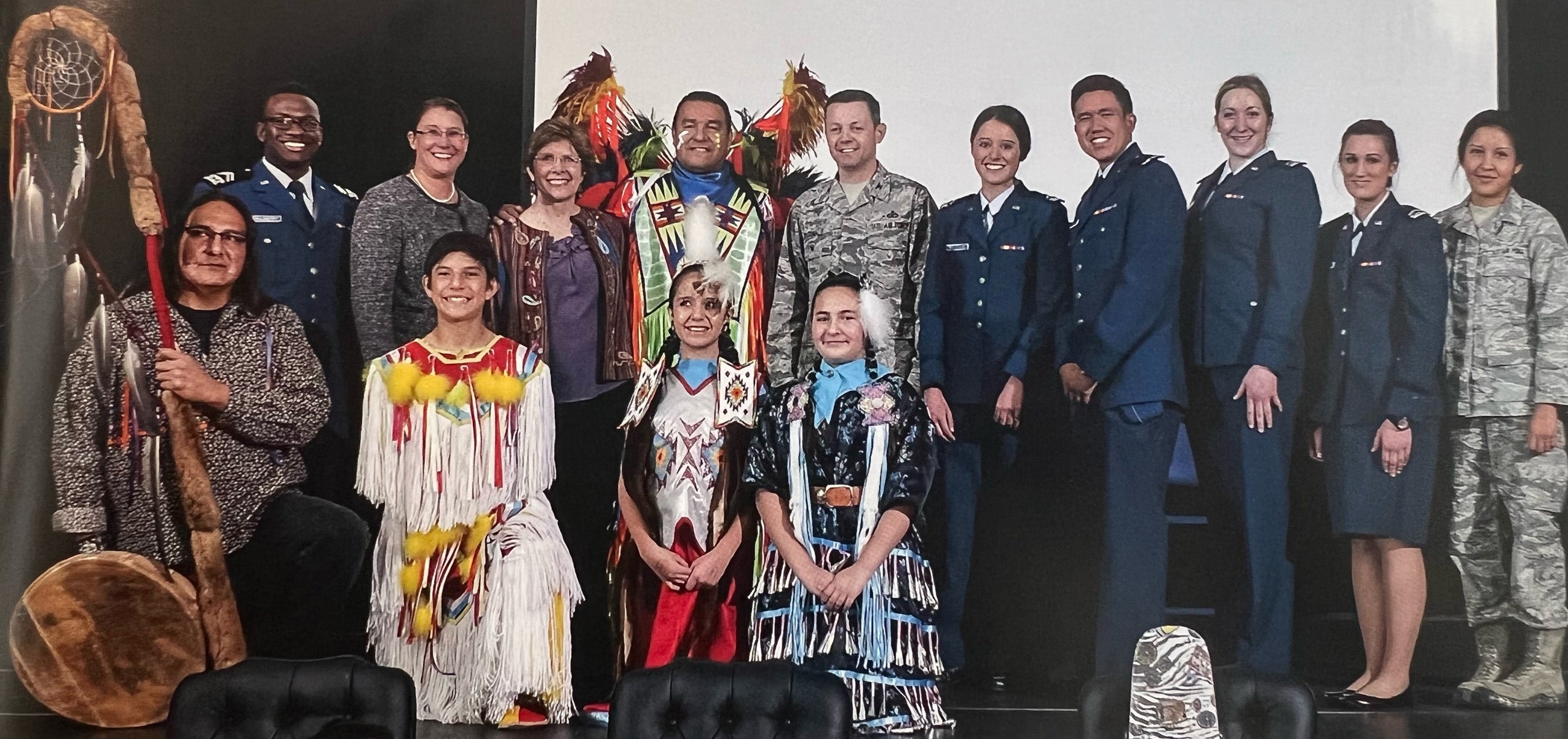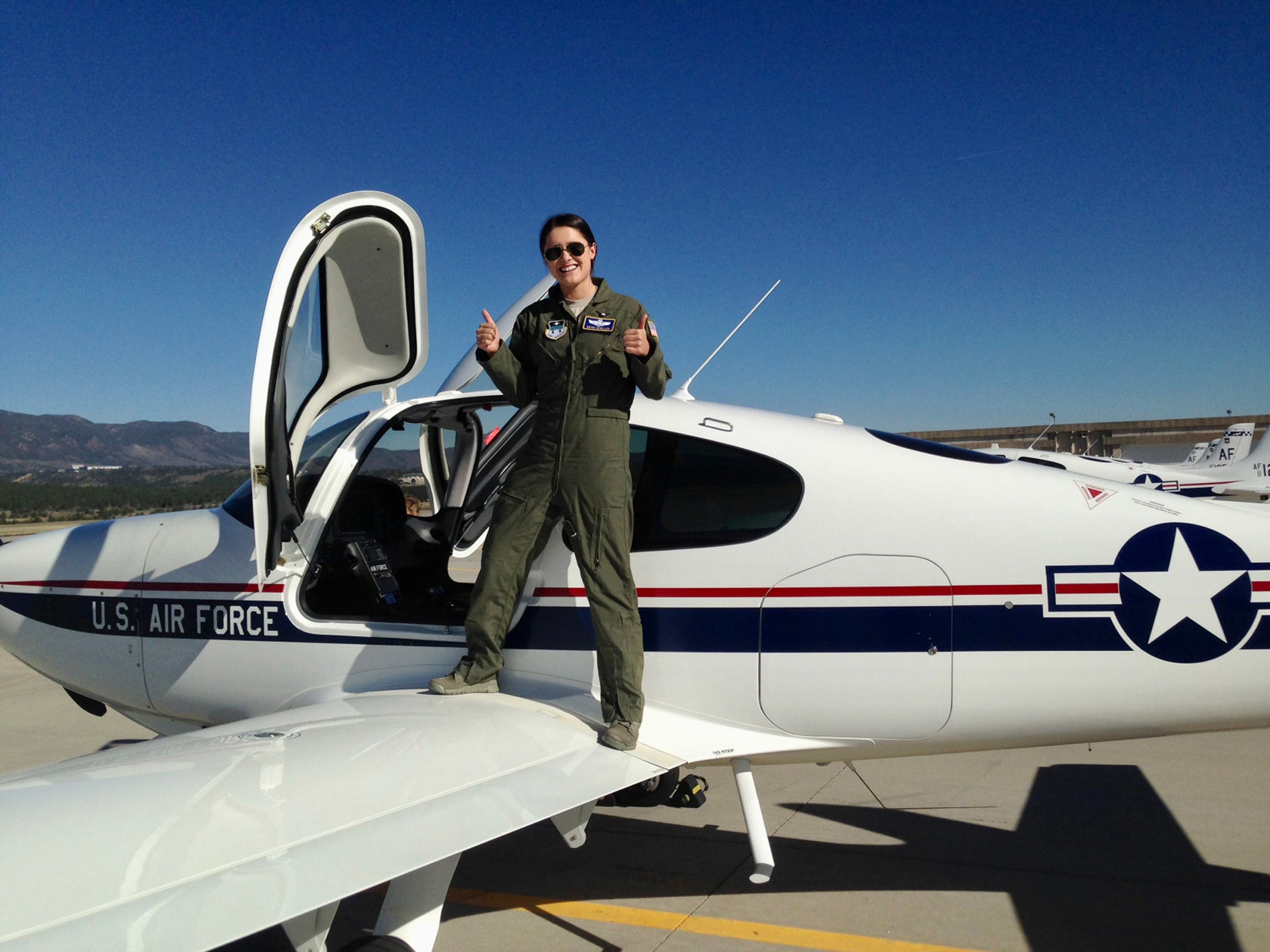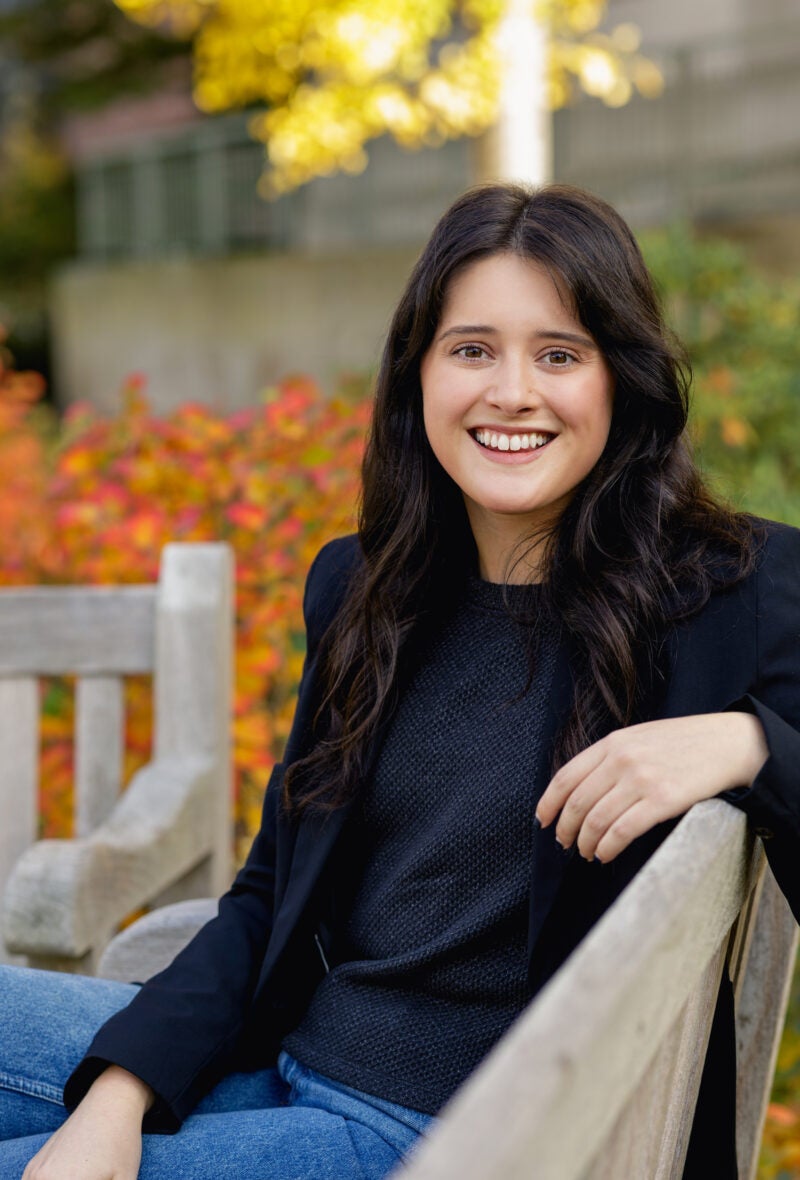Sarah McClellan ’25 is working to make sure every voice is heard. As a woman, an Air Force veteran, and a member of the Lenni Lenape tribe, McClellan knows that minority voices can be drowned out in larger groups — and understands the importance of ensuring representation, thanks to experiences that have shaped her career.
A native of Rockaway, N.J., McClellan has wanted to be a lawyer since her childhood there and in Florida. But it was her pursuit of her undergraduate degree at the U.S. Air Force Academy that enabled her to visualize “what that career path could entail,” she said.
McClellan came to the Air Force out of both a desire to serve and defend her country, instilled by her father, and a sense of the financial stability the Armed Forces could provide. At the academy, she honed her skills in analytical rhetoric on the forensics team, participating in British-style parliamentary debates and impromptu-speaking events with the group, for which she eventually served as captain. Time spent volunteering with the Pikes Peak Justice and Peace Commission in Colorado Springs, helping organizations doing frontline work with the homeless, low-income, and other underserved communities increase their outreach and effectiveness, “deepened my interest in helping others through activism,” she recalled.

Due to the limited number of law school slots allocated to U.S. Air Force Academy graduates, McClellan focused on business as her undergraduate major with the idea of eventually pursuing an M.B.A. Upon graduating with a B.S. in management in 2017, she began work as a contracting officer at MacDill Air Force Base in Tampa, FL, overseeing acquisitions and other elements of government relations with defense contractors, and, ultimately, as an administrator managing a $740 million portfolio for Department of Defense agencies.
Throughout her Air Force career, McClellan became aware of some disparities. Noting that Indigenous people serve at a higher per-capita rate than any other population, “I was surprised by the number of natives I would encounter, and I enjoyed that camaraderie.”
“I was surprised by the number of natives I would encounter [in the military], and I enjoyed that camaraderie.”
Women made up only approximately one-quarter of the students at the academy, resulting in “much more male input in the classroom discussion,” she said. This created an unbalanced dynamic that built on itself: “As one of the few women in the room, I could at times be slower to interject my opinion because I internalized so much of the male perspective that I didn’t want to offer my own perspective,” she said. McClellan leveraged this background into an asset, advising senior officers about procurement decisions in her career as a contracting officer, where she was often “one of a handful women in a room of predominantly men.”

Soon after graduation, McClellan attended a class on sexual assault prevention, part of a program mandated by the Department of Defense. Aware that sexual assault was an “especially pernicious problem in the Air Force” and moved to “create a culture of positive change,” as she put it, she volunteered as an instructor in the Sexual Assault and Violence Prevention and Response program — with the support of her commanding officers. “My military chain of command was very respectful of what I wanted to do and allotted me that time to pursue it during work hours as well.” she said. It was a formative experience for her.
McClellan helped create a curriculum and co-led classes of 50 to 60 Air Force personnel and civilian employees. Although the class also covered suicide prevention, McClellan focused on sexual assault awareness. “The biggest thing we tried to communicate was how to be an active bystander,” she said. Citing “the three ‘D’s,” she instructed her students to “be direct,” and go straight to the person causing harm or check in with the believed victim; “distract” to diffuse a situation; or “delegate,” by making someone in a position of authority aware of the situation.
During her two years teaching the class, as when she was supervising personnel, she made a conscious effort to elicit input and to be aware and inclusive. “To not have some voices crowd out other voices,” as she put it.
The program was “the most rewarding task of my career thus far,” she said. “But when I was acting as an instructor, I thought ‘I want to do more,’” a realization that led her to revisit her childhood dream — and finally to Harvard Law.
“My experience within the Air Force has instilled a lot of confidence in me to be resilient to a high-paced work environment.”
On the campus in Cambridge, she is finding community. For example, McClellan, along with the veterans in her section, had breakfast with Oren Bar-Gill LL.M. ’01 S.J.D. ’05, William J. Friedman and Alicia Townsend Friedman Professor of Law and Economics, who had served with the Israeli Defense Forces. “It was definitely a high point to hear his perspective of how his military service has influenced his law career,” recalled McClellan.
The shared meal sparked discussion with her peers. “To sit down and share our perspectives of military service among all veterans was unique,” she said, expressing gratitude that “Harvard was able to provide that by giving us the forum to have that breakfast together.’’
McClellan has also connected with the Native American Law Students Association which she has found “extremely welcoming.” Calling the group her “sanity check” against “imposter syndrome,” she noted how her heritage helps her identify with Harvard Law School students from many different backgrounds. “I am adding to the diversity of perspectives out there,” she said.
Her approach to her future legal career is broadening as well. Originally drawn to the idea of becoming a prosecutor — “potentially putting the perpetrators of sexual assault behind bars” — she is now looking into policy development. “I am very open to what I encounter over the next two and a half years,” she said. “But I know I would like to be in the public service realm at some point in my career again, as a lawyer.”
Wherever she ends up, McClellan is ready to fly. “My experience within the Air Force has instilled a lot of confidence in me to be resilient to a high-paced work environment,” she said.
